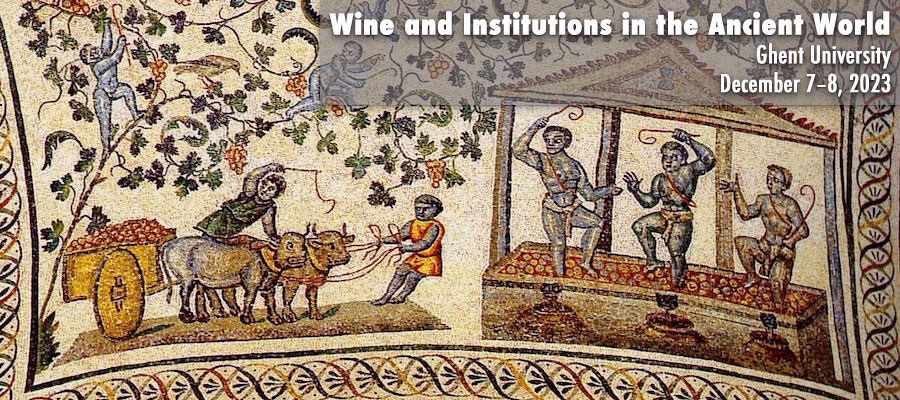Wine and Institutions in the Ancient World, Ghent University, December 7–8, 2023
Wine was deeply embedded in ancient Mediterranean societies at all levels, especially in the Greco Roman world. It was the beverage of choice for the wealthy and the poor, the most important intoxicant in the ancient world and a major source of calories in the daily diet. Wine was universally used in ceremony and medicine, and its drinking equivalent to civilized socio-cultural behavior. This put wine on the tables of all classes and kinds of people, from the common man to the emperor, from slaves to citizens, from military men to civilians, and from pagan to believer.
This widespread and profound importance of wine in ancient societies and economies made it the object of recurrent and widespread exploitation and control by various institutions, including first the ruling elites, states and legal bodies – e.g., in trade and provisioning by statal supply mechanisms (cf. the Roman Annona or the Greek polis), in agriculture through the presence of rural government-owned estates, and in legislation by giving privileges or tax reliefs to producers and traders – but also religious organizations (e.g., productions connected to temples, churches, monasteries, etc.) and both civilian and military associations in town and country.
With this conference, we would like to explore how wine was produced, traded, and consumed within these kinds of institutional frameworks in the ancient Mediterranean, in East and West, and from Classical to Late Antiquity. We broadly aim at organizing the conference into three main thematic sessions – 1) Wine and power; 2) Wine and religious institutions; and 3) Wine and the army – but proposals dealing with other related aspects are also welcomed. We are interested in papers that address specific cases and/or contexts, and wider topical discussions covering local, regional and/or Mediterranean-wide developments. We especially encourage colleagues to submit interdisciplinary proposals that fuse archaeology, ancient history and natural sciences, but more single discipline-focused talks are also accepted.
